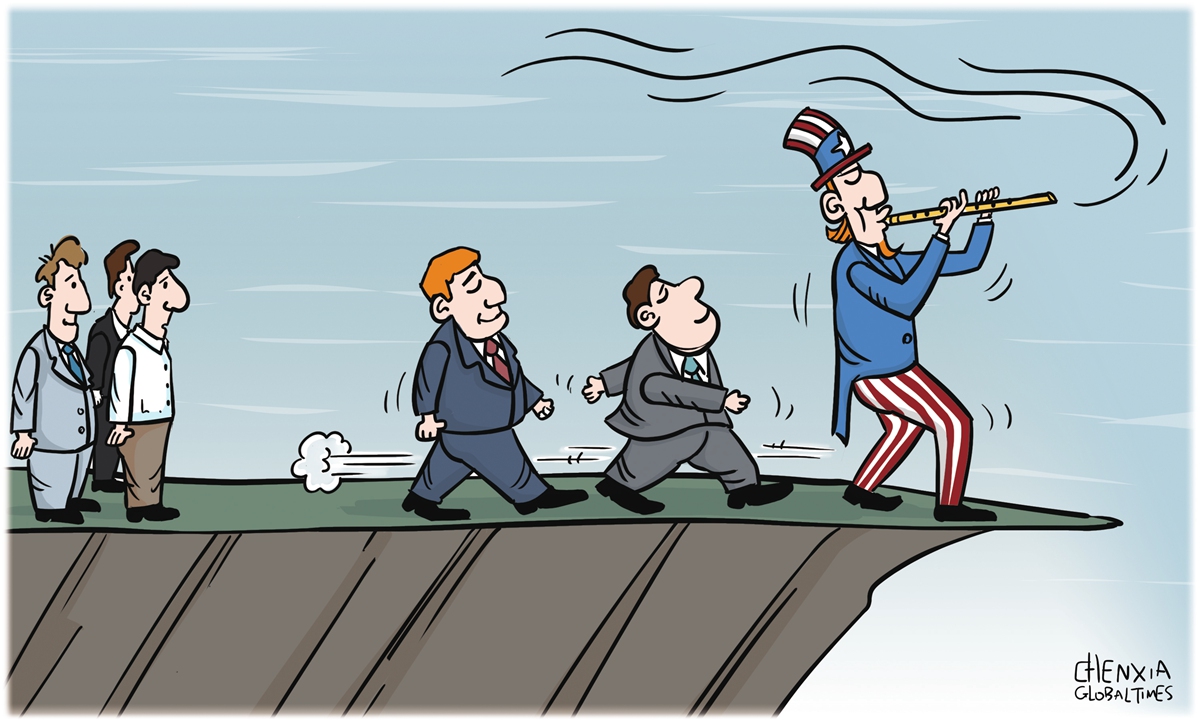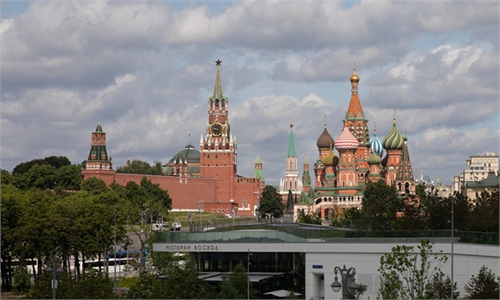US prides itself on international allies but may find itself lacking

Illustration: Chen Xia/GT
CNN on Friday optimistically reported: "Even some on Biden's own national security team were surprised at how quickly some US allies in Asia… were willing to slap sanctions on Russia following its invasion."
Truthfully, Biden's national security team would not have been at all surprised at the speed with which Japan, South Korea and Australia, which it refers to as an Asian ally, followed the path of US sanctions. The three countries are, to all intents and purposes, locked into the same foreign policy path as the US. They would have been advised - probably not consulted - on what action they needed to take. But the news, parroted by almost every US media outlet, is not as optimistic as it appears.
What they fail to point out is that other major players in the region - India, Pakistan, Indonesia, Vietnam - in fact, most Asian countries except Japan, South Korea and Singapore, haven't supported US sanctions.
American expectations of support are not uncommon. The UK and Australia will go along almost 100 percent of the time as they share similar foreign policy goals. The US also has good relations with New Zealand and Canada and can call upon those countries for help when the US needs them. However, when the US makes a mess far from home, as it did in Afghanistan last year, it appeals to China, not with friendly requests for help, but with posturing and chest-thumping threats.
The US' so-called international community doesn't include Africa, Central America and South America, the Middle East or most of Asia. Although slightly larger in terms of GDP, with a total of around $40.7 trillion compared to about $36 trillion for countries that have not supported US sanctions, the community is small in every other way. The number of countries (sovereign states) recognized by the UN is 193, and 151 of them are not included in this international community. The population of the rest 42 countries is less than 1.5 billion while the other 80 percent of the world's people inhabit the other 151 countries. The US prides itself on its democracy but, if US policies were put to a vote of the real international community, none of the strategies and sanctions the US initiates would ever be voted into place, according to my own calculations and statistics.
The US has proven, time and again, that it is not a reliable ally in global affairs. Henry Kissinger famously stated: "To be an enemy of America can be dangerous, but to be a friend is fatal." History has proven him right. He was referring at the time to president Ngo Dinh Diem, the American-supported president of South Vietnam who was assassinated by his own military after the US removed its support. Nguyen Van Thieu, who later became president of South Vietnam, was himself abandoned when the US pulled out of Vietnam a few years later.
Saddam Hussein was placed in charge of Iraq with American support because the US liked his version of a united Arab world more than it liked Communism. But now he's dead; hunted down, put on trial and executed after a US-led invasion of his country. Muammar al-Gaddafi likewise was a friend to America and its oil interests, until he wasn't. Once again, the US entered his country in a NATO-led "intervention" leading to his ignominious and shamefully publicly broadcast death.
It's hardly surprising that no country the US calls a friend wants to go against it but it's also hardly surprising that many countries in the world, when called upon by the US to support it, will take time and care in their decisions.
After all, being America's friend may initially seem to be a pathway to better things but can indeed, on closer examination, be fatal.
The author is a British Australian freelance writer who has studied cross cultural change management in China and has lived in the country, traveling extensively for 17 years. opinion@globaltimes.com.cn

